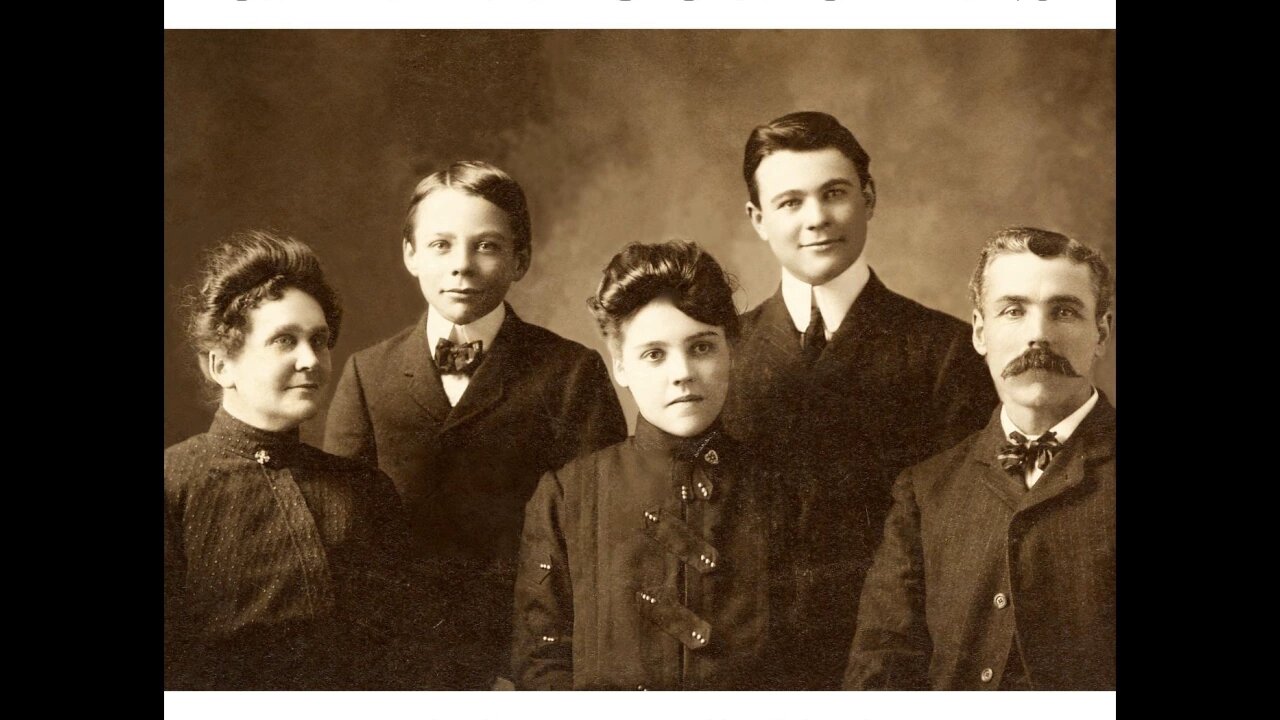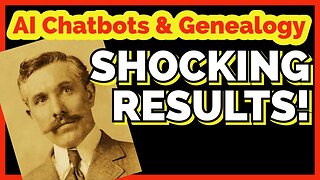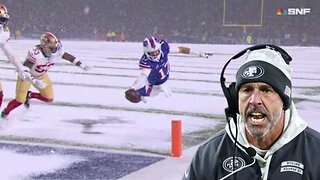Premium Only Content

Episode 118 - Grandmas & Grandpas, Free Transcription Software, PERSI, and more
Genealogy Gems Podcast
Episode 118 with Lisa Louise Cooke
Download the FREE App
www.GenealogyGems.com
Published Sept 17, 2011
Everyone has a special name for grandparents in their family. In ours we have Nanna, Grandma, and even Pat-Pat. I look forward to the day my grandson Davy calls me Grandma. While I wait, tell me the unusual terms of endearment used in your family for grandparents. Email or leave a voice mail and be included on the show: (925) 272-4021
Listen to the episode:
Here's my Grandson Davy checking out tractors at the state fair with his Bumpa (AKA Superman / Indiana Jones)
NEWS:
FamilySearch
FamilySearch has added millions of new records of both Confederate and Union soldiers who served in the American Civil War. Also now available for viewing are newly added notarial records from Canada, church records and civil registrations from Mexico, and records from England. www.familysearch.org
From the UK National Archives
The UK National Archives announced that findmypast.co.uk has just released 1 million Merchant Navy seamen records, dating from 1918 to 1941.
Useful guides at the UK National Archives website to help with your research into merchant seamen.
My Ancestor was a Merchant Seaman is available from their bookshop.
Apprenticeship records
Over half a million records of apprentices have been added to the Ancestry.co.uk site. They cover Scotland, England Wales during the years 1710-1811.
To learn more about apprenticeship records, check out the TNA Research Guide to Apprenticeship Records
Australian military records
You can now access the records of Australian soldiers who fought in the Great War free at the National Archives of Australia website.
If your relative was an Australian soldier, the Office of Australian War Graves at the Australian Government Department of Veteran's Affairs website offers free photographs of Australian solder's graves.
Our wonderful sponsor RootsMagic is offering 2 new webinars absolutely free.
What's New in Personal Historian 2
Wednesday, September 28, 2011, 6pm Mountain time, 90 minutes
Creating a Shareable CD with RootsMagic
Tuesday, October 4, 2011, 5pm MDT, 60 minutes.
If the webinars don't fit your schedule they will be posting a recording of the class on their website at www.rootsmagic.com/webinar that you can watch at your convenience absolutely free! And it stays free it doesn't disappear in a month. I love that about the RootsMagic webinars!
Lisa's Upcoming Speaking Engagements
9/25/11 - Sacramento Public Library, Sacramento, CA
10/7 8/11 - Northern California Family History Expo, San Mateo, CA
10/21/11 - Waterloo Iowa Public Library Webinar
10/22/11 - Webinar for the Hayden Idaho Family History Center Fall Family History Seminar
10/29/11 - Victoria Genealogical Society Seminar, Victoria, British Columbia
11/11 & 12/11 - Georgia Family History Expo, Duluth, GA
Feb 2 & 4, 2012 & RootsTech, Salt Lake City, UT
MAILBOX:
As you'll remember I had an interesting conversation with DearMYRTLE in Episode 117 about the abbreviation FL that showed up in podcast listener Dot's family history research. She was wondering what it stood for, and DearMYRTLE was intrigued as well so she did a bit of investigation on it which we discussed in the show. Well several of you wrote in with your thoughts on the subject:
Sean writes:
My first thought was that the abbreviation would stand for "found living" and it sort of makes sense based on the discussion. Finding this abbreviation in research could provide an important clue to narrow down when and where a person lived.
And Dot chimed in with:
Rob and I do however think there is a time when it is handy for genealogists to use it. If you don't have birth and death dates, we think that instead of having nothing, fl. gives you dates as a rough guide as to when the ancestor lived and you can always extend the dates once more information is found.
Dave wrote in with a different take:
It does refer to someone's productive time, but typically it refers the time that someone is known to have practiced their profession. Usually, it is used when no biographical information exists In genealogy, it is less likely that this kind of sourcing is useful, since the person is tied, biologically, to a time and place. We know the age ranges for life events, so we can guess better. That said, it is very useful to be able to interpret...
-
 24:24
24:24
Genealogy Gems - Your Family History Channel
1 year agoSHOCKING RESULTS! Should you use AI Chatbots for Genealogy?
152 -
 LIVE
LIVE
Graham Allen
1 hour agoGRAHAM MAKES YUGE ANNOUNCEMENT!! + LIBERAL REP ROOTING AGAINST AMERICA?!
7,059 watching -
![Massive Paradigm Shift: Bongino Hired At FBI; Joy Reid Fired At MSBNC [EP 4450-8AM]](https://1a-1791.com/video/fwe1/52/s8/1/u/2/_/e/u2_ey.0kob-small-Massive-Paradigm-Shift-Bong.jpg) LIVE
LIVE
The Pete Santilli Show
14 hours agoMassive Paradigm Shift: Bongino Hired At FBI; Joy Reid Fired At MSBNC [EP 4450-8AM]
3,972 watching -
 1:27:17
1:27:17
Game On!
13 hours ago $2.37 earnedAnother Monday without football...
22.5K7 -
 LIVE
LIVE
Jeff Ahern
1 hour agoMonday Madness with Jeff Ahern (Ding Dong the Witch is Gone!)
373 watching -
 34:56
34:56
Athlete & Artist Show
21 hours ago $1.61 earnedCANADA WINS GOLD AGAIN!!
14K2 -
 15:27
15:27
TSPLY
23 hours agoCNN Forgets President Trump Can Fire Anyone He Wants From The Pentagon
24K15 -
 15:13
15:13
Clownfish TV
20 hours agoBluesky Trusts the Science? Scientists FLEEING X for Bluesky!
27.1K8 -
 29:50
29:50
The Finance Hub
15 hours ago $6.52 earnedBREAKING: TULSI GABBARD JUST DROPPED A MAJOR BOMBSHELL!!!
30.2K23 -
 11:32
11:32
ariellescarcella
17 hours ago"Being A Lady Boy Is Exciting!" (This Dude Has A Kid)
21.9K8